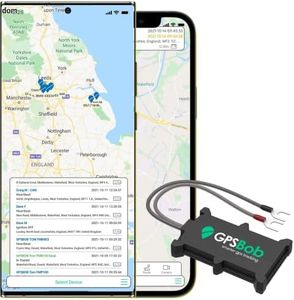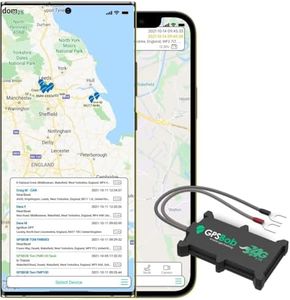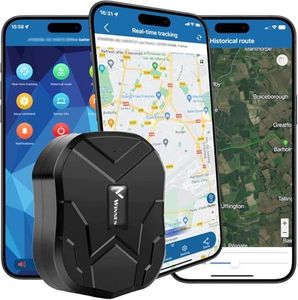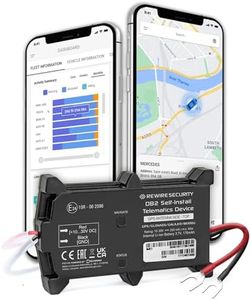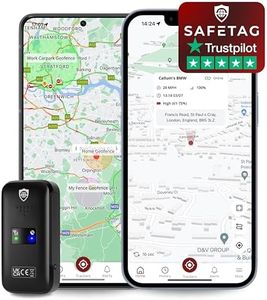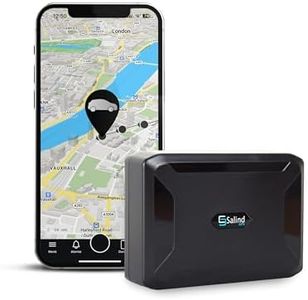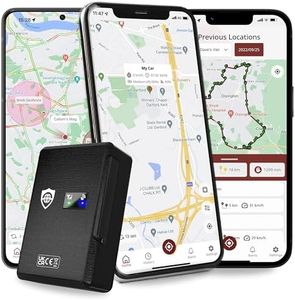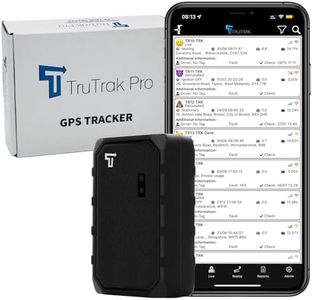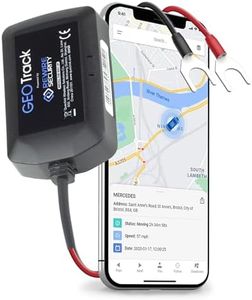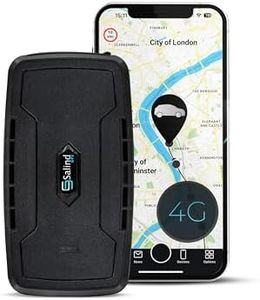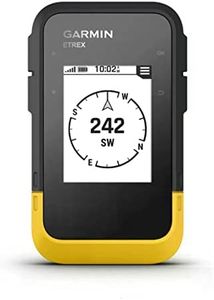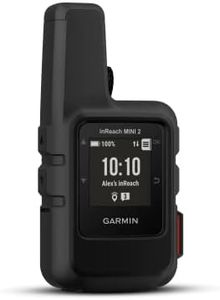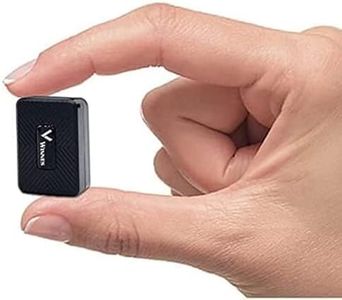We Use CookiesWe use cookies to enhance the security, performance,
functionality and for analytical and promotional activities. By continuing to browse this site you
are agreeing to our privacy policy
10 Best Gps Trackers
From leading brands and best sellers available on the web.Recommended lists
Buying Guide for the Best Gps Trackers
When choosing a GPS tracker, it's important to consider what you need it for, as different trackers offer various features and capabilities. Whether you're tracking a vehicle, a pet, or a personal item, understanding the key specifications will help you make an informed decision. Consider the size, battery life, tracking accuracy, and connectivity options, as these will impact how well the tracker meets your needs.Size and PortabilityThe size and portability of a GPS tracker are crucial, especially if you need to attach it to a small object or carry it with you. Smaller trackers are more discreet and easier to conceal, making them ideal for personal items or pets. Larger trackers might offer more features or longer battery life but can be cumbersome. Consider where and how you plan to use the tracker to determine the right size for your needs.
Battery LifeBattery life determines how long the GPS tracker can operate before needing a recharge. This is important for continuous tracking without frequent interruptions. Trackers with longer battery life are suitable for long-term tracking, such as for vehicles or assets. Shorter battery life might be acceptable for personal use where recharging is convenient. Evaluate how often you can recharge the device and choose a battery life that aligns with your usage pattern.
Tracking AccuracyTracking accuracy refers to how precisely the GPS tracker can determine its location. High accuracy is essential for applications where precise location data is critical, such as tracking valuable assets or ensuring the safety of loved ones. Trackers with higher accuracy often use multiple satellite systems and advanced algorithms. If you need general location information, a tracker with moderate accuracy might suffice. Consider the level of precision you require for your specific use case.
Connectivity OptionsConnectivity options determine how the GPS tracker communicates its location data. Common options include cellular networks, Wi-Fi, and Bluetooth. Cellular connectivity offers wide coverage and is suitable for tracking over long distances, while Wi-Fi and Bluetooth are more limited but can be useful for indoor tracking or short-range applications. Choose a connectivity option that matches the environment and range in which you plan to use the tracker.
Real-Time TrackingReal-time tracking allows you to see the current location of the tracker at any given moment. This feature is important for applications where immediate location updates are necessary, such as monitoring a vehicle's route or ensuring a child's safety. Some trackers offer real-time tracking with frequent updates, while others may provide periodic updates. Decide how critical real-time information is for your needs and select a tracker that offers the appropriate level of tracking frequency.
Durability and Weather ResistanceDurability and weather resistance are important if the GPS tracker will be exposed to harsh conditions or outdoor environments. A durable tracker can withstand drops, impacts, and rough handling, while weather-resistant models can operate in rain, snow, or extreme temperatures. If you plan to use the tracker in challenging conditions, look for features like waterproofing and rugged construction. Consider the environmental conditions the tracker will face and choose accordingly.
